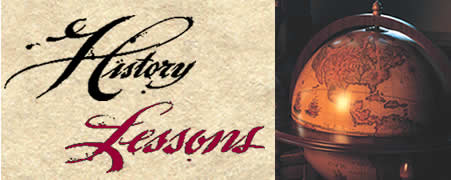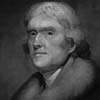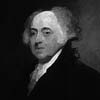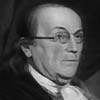
 Johnson on Jefferson:
Johnson on Jefferson:
"Thomas Jefferson embodies the Revolution's high idealism. A man of supreme taste and intellect, he penned principles of human rights and equality that defined a nation's purpose and reshaped world history. Yet the more we try to fix upon the person of 'the Sage of Monticello,' the more elusive-up there on his hilltop-he becomes. His contradictions now seem as fascinating as his achievements, and he serves as a guide not only to the shaping of the Revolution's greatest aspirations but also to the social and political realities that would bedevil their fulfillment."
 Johnson on Adams:
Johnson on Adams:"John Adams, by contrast, as he ruefully predicted, has had no monuments erected to him. Hungry for renown, openly but awkwardly political, and unsparing in his assessment of others and of himself, he fell out of tune with our vision of the Revolution's purposes. Yet the more we explore Adams, warts and all, the more we find him cut out of whole cloth, from the warmth and generosity of his family life to his heroic commitment to public service. No one on or off the battlefield, we can now perceive, did more to shape the forms of constitutional government that emerged as the Revolution's most enduring legacy."
 Johnson on Franklin:
Johnson on Franklin:"Benjamin Franklin gives us not one but many threads to follow. The American Revolution was but the last and greatest of his projects. Famously self-made, a veritable committee unto himself, he endowed the Revolution with the glamour of his dazzling career as sage, scientist and entrepreneur. His several lives illuminate both the world of Britain's America, before the breach, and what would become Americans' ambitions for life within a proudly independent nation."
Go To: Page 1| Page 2 | Page 3
- Return to December 2002 Table of Contents